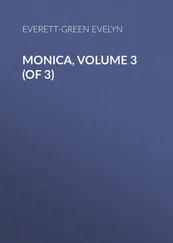Friedrich Max Müller - Chips from a German Workshop, Volume 1
Здесь есть возможность читать онлайн «Friedrich Max Müller - Chips from a German Workshop, Volume 1» — ознакомительный отрывок электронной книги совершенно бесплатно, а после прочтения отрывка купить полную версию. В некоторых случаях можно слушать аудио, скачать через торрент в формате fb2 и присутствует краткое содержание. Жанр: foreign_prose, foreign_antique, на английском языке. Описание произведения, (предисловие) а так же отзывы посетителей доступны на портале библиотеки ЛибКат.
- Название:Chips from a German Workshop, Volume 1
- Автор:
- Жанр:
- Год:неизвестен
- ISBN:нет данных
- Рейтинг книги:3 / 5. Голосов: 1
-
Избранное:Добавить в избранное
- Отзывы:
-
Ваша оценка:
- 60
- 1
- 2
- 3
- 4
- 5
Chips from a German Workshop, Volume 1: краткое содержание, описание и аннотация
Предлагаем к чтению аннотацию, описание, краткое содержание или предисловие (зависит от того, что написал сам автор книги «Chips from a German Workshop, Volume 1»). Если вы не нашли необходимую информацию о книге — напишите в комментариях, мы постараемся отыскать её.
Chips from a German Workshop, Volume 1 — читать онлайн ознакомительный отрывок
Ниже представлен текст книги, разбитый по страницам. Система сохранения места последней прочитанной страницы, позволяет с удобством читать онлайн бесплатно книгу «Chips from a German Workshop, Volume 1», без необходимости каждый раз заново искать на чём Вы остановились. Поставьте закладку, и сможете в любой момент перейти на страницу, на которой закончили чтение.
Интервал:
Закладка:
Then Indra answers through the poet:
'Here I am, O worshipper, behold me here! in might I surpass all things.'
Similar visions occur elsewhere, where the poet, after inviting a god to a sacrifice, or imploring his pardon for his offences, suddenly exclaims that he has seen the god, and that he feels that his prayer is granted. For instance:
1. However we break thy laws from day to day, men as we are, O god, Varu n a,
2. Do not deliver us unto death, nor to the blow of the furious; nor to the wrath of the spiteful!
3. To propitiate thee, O Varu n a, we unbend thy mind with songs, as the charioteer a weary steed.
4. Away from me they flee dispirited, intent only on gaining wealth; as birds to their nests.
5. When shall we bring hither the man, who is victory to the warriors; when shall we bring Varu n a, the wide-seeing, to be propitiated?
[6. This they (Mitra and Varu n a) take in common; gracious, they never fail the faithful giver.]
7. He who knows the place of the birds that fly through the sky, who on the waters knows the ships;—
8. He, the upholder of order, who knows the twelve months with the offspring of each, and knows the month that is engendered afterwards;—
9. He who knows the track of the wind, of the wide, the bright, the mighty; and knows those who reside on high;—
10. He, the upholder of order, Varu n a, sits down among his people; he, the wise, sits there to govern.
11. From thence perceiving all wondrous things, he sees what has been and what will be done.
12. May he, the wise Âditya, make our paths straight all our days; may he prolong our lives!
13. Varu n a, wearing golden mail, has put on his shining cloak; the spies sat down around him.
14. The god whom the scoffers do not provoke, nor the tormentors of men, nor the plotters of mischief;—
15. He, who gives to men glory, and not half glory, who gives it even to our own selves;—
16. Yearning for him, the far-seeing, my thoughts move onwards, as kine move to their pastures.
17. Let us speak together again, because my honey has been brought: that thou mayst eat what thou likest, like a friend.
18. Did I see the god who is to be seen by all, did I see the chariot above the earth? He must have accepted my prayers.
19. O hear this my calling, Varu n a, be gracious now; longing for help, I have called upon thee.
20. Thou, O wise god, art lord of all, of heaven and earth: listen on thy way.
21. That I may live, take from me the upper rope, loose the middle, and remove the lowest!
In conclusion, let me tell you that there is in the Veda no trace of metempsychosis or that transmigration of souls from human to animal bodies which is generally supposed to be a distinguishing feature of Indian religion. Instead of this, we find what is really the sine quâ non of all real religion, a belief in immortality, and in personal immortality. Without a belief in personal immortality, religion surely is like an arch resting on one pillar, like a bridge ending in an abyss. We cannot wonder at the great difficulties felt and expressed by bishop Warburton and other eminent divines, with regard to the supposed total absence of the doctrine of immortality or personal immortality in the Old Testament; and it is equally startling that the Sadducees who sat in the same council with the high-priest, openly denied the resurrection. 28However, though not expressly asserted anywhere, a belief in personal immortality is taken for granted in several passages of the Old Testament, and we can hardly think of Abraham or Moses as without a belief in life and immortality. But while this difficulty, so keenly felt with regard to the Jewish religion, ought to make us careful in the judgments which we form of other religions, and teach us the wisdom of charitable interpretation, it is all the more important to mark that in the Veda passages occur where immortality of the soul, personal immortality and personal responsibility after death, are clearly proclaimed. Thus we read:
'He who gives alms goes to the highest place in heaven; he goes to the gods' (Rv. I. 125, 56).
Another poet, after rebuking those who are rich and do not communicate, says:
'The kind mortal is greater than the great in heaven!'
Even the idea, so frequent in the later literature of the Brahmans, that immortality is secured by a son, seems implied, unless our translation deceives us, in one passage of the Veda (VII. 56, 24): 'Asmé (íti) vira h maruta h sushmî astu g ánânâm yá h ásura h vi dhartâ, apá h yéna su-kshitáye tárema, ádha svám óka h abhí vah syáma.' 'O Maruts, may there be to us a strong son, who is a living ruler of men: through whom we may cross the waters on our way to the happy abode; then may we come to your own house!'
One poet prays that he may see again his father and mother after death (Rv. I. 24, 1); and the fathers (Pit r is) are invoked almost like gods, oblations are offered to them, and they are believed to enjoy, in company with the gods, a life of never ending felicity (Rv. X. 15, 16).
We find this prayer addressed to Soma (Rv. IX. 113, 7):
'Where there is eternal light, in the world where the sun is placed, in that immortal imperishable world place me, O Soma!'
'Where king Vaivasvata reigns, where the secret place of heaven is, where these mighty waters are, there make me immortal!
'Where life is free, in the third heaven of heavens, where the worlds are radiant, there make me immortal!'
'Where wishes and desires are, where the place of the bright sun is, where there is freedom and delight, there make me immortal!
'Where there is happiness and delight, where joy and pleasure reside, where the desires of our desire are attained, there make me immortal!' 29
Whether the old Rishis believed likewise in a place of punishment for the wicked, is more doubtful, though vague allusions to it occur in the Rig-veda, and more distinct descriptions are found in the Atharva-veda. In one verse it is said that the dead is rewarded for his good deeds, that he leaves or casts off all evil, and glorified takes his body (Rv. X. 14, 8). 30The dogs of Yama, the king of the departed, present some terrible aspects, and Yama is asked to protect the departed from them (Rv. X. 14, 11). Again, a pit (karta) is mentioned into which the lawless are said to be hurled down (Rv. IX. 73, 8), and into which Indra casts those who offer no sacrifices (Rv. I. 121, 13). One poet prays that the Âdityas may preserve him from the destroying wolf, and from falling into the pit (Rv. II. 29, 6). In one passage we read that 'those who break the commandments of Varu n a and who speak lies are born for that deep place' (Rv. IV. 5, 5). 31
Surely the discovery of a religion like this, as unexpected as the discovery of the jaw-bone of Abbeville, deserves to arrest our thoughts for a moment, even in the haste and hurry of this busy life. No doubt for the daily wants of life, the old division of religions into true and false is quite sufficient; as for practical purposes we distinguish only between our own mother-tongue on the one side, and all other foreign languages on the other. But, from a higher point of view, it would not be right to ignore the new evidence that has come to light; and as the study of geology has given us a truer insight into the stratification of the earth, it is but natural to expect that a thoughtful study of the original works of three of the most important religions of the world, Brahmanism, Magism, and Buddhism, will modify our views as to the growth or history of religion, as to the hidden layers of religious thought beneath the soil on which we stand. Such inquires should be undertaken without prejudice and without fear: the evidence is placed before us; our duty is to sift it critically, to weigh it honestly, and to wait for the results.
Читать дальшеИнтервал:
Закладка:
Похожие книги на «Chips from a German Workshop, Volume 1»
Представляем Вашему вниманию похожие книги на «Chips from a German Workshop, Volume 1» списком для выбора. Мы отобрали схожую по названию и смыслу литературу в надежде предоставить читателям больше вариантов отыскать новые, интересные, ещё непрочитанные произведения.
Обсуждение, отзывы о книге «Chips from a German Workshop, Volume 1» и просто собственные мнения читателей. Оставьте ваши комментарии, напишите, что Вы думаете о произведении, его смысле или главных героях. Укажите что конкретно понравилось, а что нет, и почему Вы так считаете.












